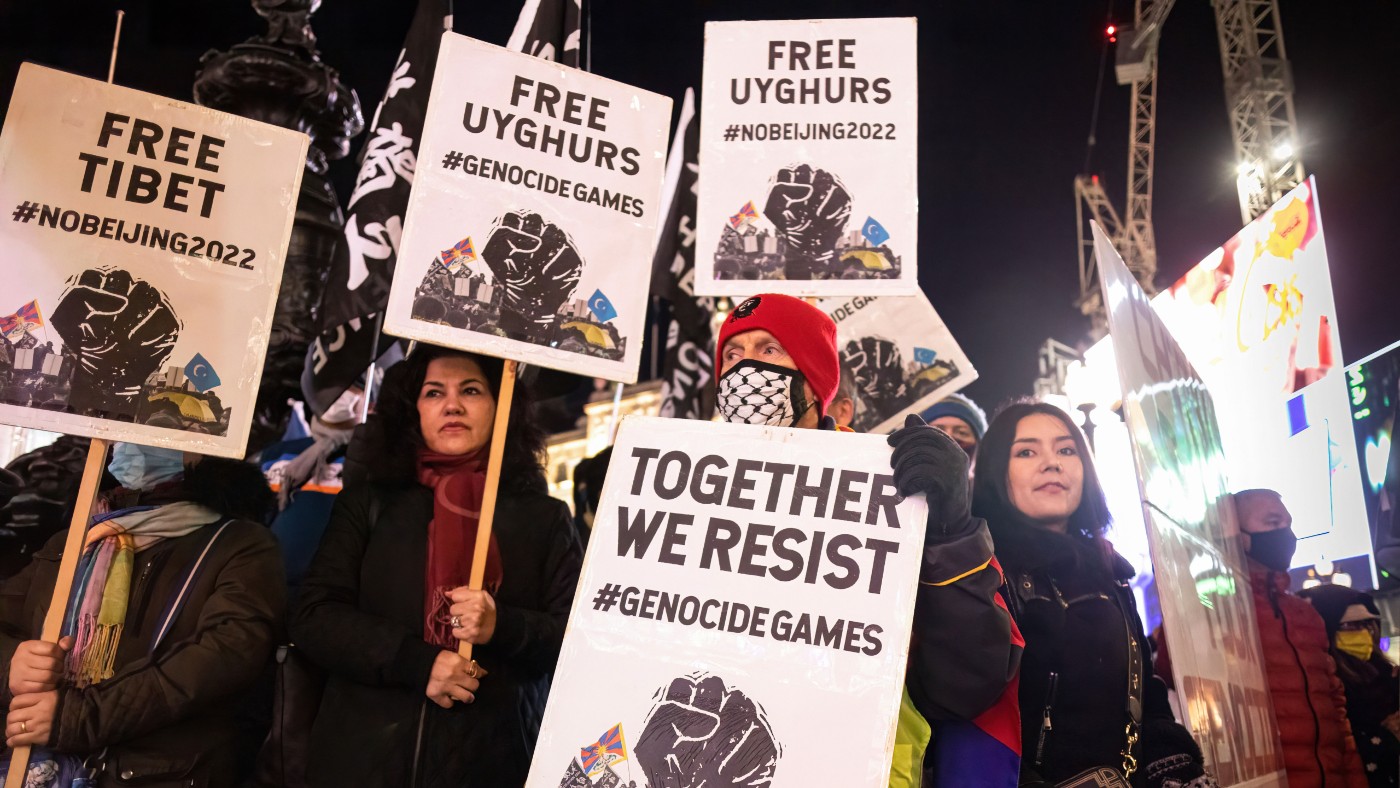The Olympic boycott: a small gesture of condemnation
Will the diplomatic boycott of the Winter Olympics in China achieve anything?

A free daily email with the biggest news stories of the day – and the best features from TheWeek.com
You are now subscribed
Your newsletter sign-up was successful
In February, China will open the 24th Winter Olympics in Beijing “under the shadow” of the pandemic – and, now, of a diplomatic boycott too, said Steven Lee Myers and Steven Erlanger in The New York Times. Last week, the US announced that it will send “no official delegation” to the Games. It cited concerns over China’s human rights record, in particular the abuse of Uyghur Muslims and “crackdowns in Tibet and Hong Kong”. Several other countries – including Britain, Australia and Canada – quickly followed suit. Others, such as Japan, are weighing up their options (although France, the host of the 2024 Games, said it had no such plans and called the move “insignificant”). The boycotting countries stopped short of banning athletes from attending. Even so, their decision still drew an angry reaction from Beijing, which declared that these nations “will pay the price for their mistaken acts”.
The Games are supposed to be a time when nations come together for “competition, camaraderie and friendship”, said the South China Morning Post (Hong Kong). Diplomatic boycotts are entirely “contrary to that spirit”. Besides, this kind of “political grandstanding” simply does not work. The last time the US refused to participate in an Olympics was when it led the 66-country boycott of the 1980 Moscow Games, in protest against the Soviet occupation of Afghanistan. This clearly “failed to attain its goal”: the Soviets stayed for almost another decade. Instead of “putting the spotlight on themselves”, politicians should step aside and let athletes “shine”.
On the contrary, said Nancy Armour in USA Today (Tysons, Virginia); it’s great news that, “finally, somebody has the guts to stand up to China and its propaganda-fest”. Their decision will cast “an inescapable shadow over what President Xi Jinping planned as a celebration of China’s wealth, power and status as a global heavyweight”, and it will ensure that Beijing’s many human rights abuses remain “front and centre”. If only the organising International Olympic Committee were brave enough to follow suit: it spinelessly insists the organisation isn’t “political”. The EU, too, has failed to take a stand, said Clemens Wergin in Die Welt (Berlin). Shouldn’t Brussels, which is always trumpeting its liberal values, be leading a boycott? It’s true that a diplomatic boycott won’t really hurt China, and seems inadequate in the face of Beijing’s attempts to “erase the identity of minority peoples”, but it’s surely still better to make some small gesture of condemnation “than to do nothing at all”.
The Week
Escape your echo chamber. Get the facts behind the news, plus analysis from multiple perspectives.

Sign up for The Week's Free Newsletters
From our morning news briefing to a weekly Good News Newsletter, get the best of The Week delivered directly to your inbox.
From our morning news briefing to a weekly Good News Newsletter, get the best of The Week delivered directly to your inbox.
A free daily email with the biggest news stories of the day – and the best features from TheWeek.com